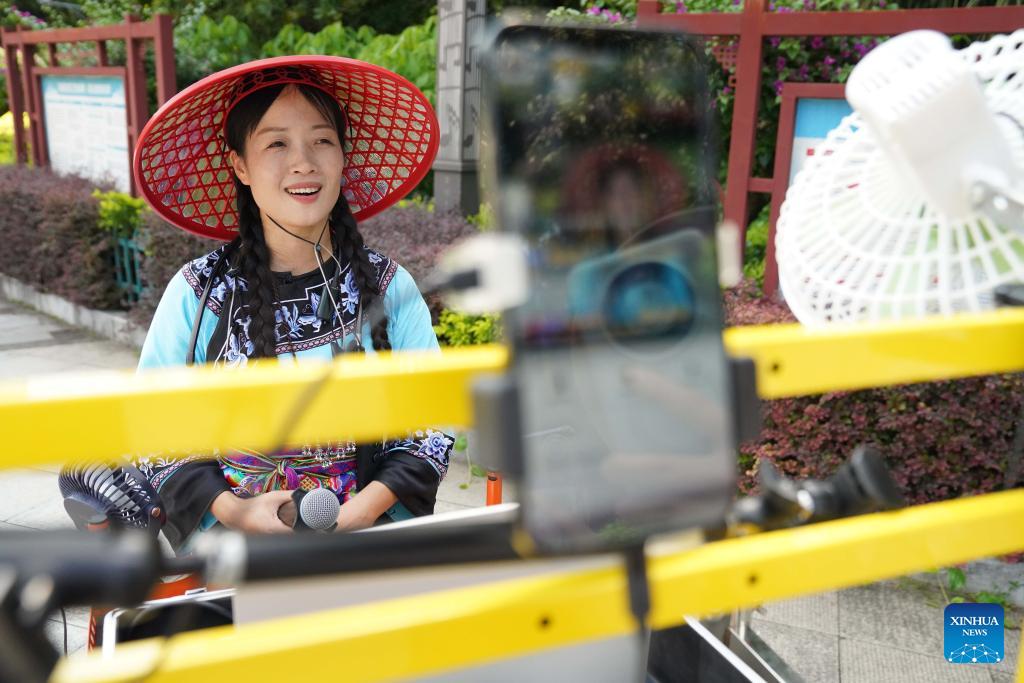
 0 Comment(s)
0 Comment(s) Print
Print E-mail Xinhua, August 29, 2024
E-mail Xinhua, August 29, 2024

A woman sings a folk song via livestreaming in Liuzhou, south China's Guangxi Zhuang Autonomous Region, Aug. 25, 2024. (Xinhua/Yin Dongxun)
The popularity of folk songs in live broadcast has snowballed, leading the singing team to include more people, from ethnic minorities, Han people to non-Chinese.
Lu Lianfang, a 48-year-old ethnic Yao, has more than 400,000 fans on Douyin, the Chinese version of TikTok. She has more than 200 students, including farmers, vegetable sellers, entrepreneurs, school principals and university students. Among them are a 10-year-old and a Pakistani national.
"We look forward to folk songs being translated into foreign languages and sung on the world stage," she said.
Liu Rihong, 18, is of Han ethnicity and has learned folk songs from Lu for seven years. Going by the name "Little Sun," she has more than 10,000 fans on Douyin.
"In the old days, Liu Sanjie just sang about rural life, like teaching people how to plant rice. I am now studying tourism management in college and I use folk songs to promote Liuzhou's tourist attractions."
Lu said young people today still find romantic partners by singing folk songs online, but the genre also plays other roles, such as promoting local specialties like Luosifen, a noodle dish known for its pungent smell.
"Folk songs tell the story of Liuzhou, the story of Guangxi, and the story of China," she said.
Nowadays, Yufeng Park regularly hosts folk song competitions. Wei said she had met singing enthusiasts from all over the country, and even farther afield, with singers from India, Thailand, Malaysia, and Russia bringing their own folk songs.
"Folk songs help me understand different cultures and different ethnic groups. They connect people together and help them make friends. This is also very helpful for the inheritance of folk songs," said Wei.